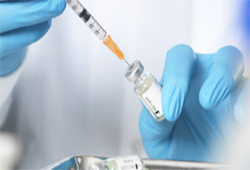
Researchers from the University of Arizona Cancer Center recently presented results of a simulation designed to model the cost savings from converting patients from pegfilgrastim to biosimilar pegfilgrastim-cbqv. The results were presented at the American Society of Clinical Oncology (ASCO) Annual Meeting on May 29-31, 2020.
The researchers conducted simulation modeling of cost savings from conversion of pegfilgrastim to biosimilar pegfilgrastim-cbqv for the prophylaxis of chemotherapy-induced febrile neutropenia. The researcher team performed a number of analyses:
- They conducted a US comparative cost-efficiency analysis of prophylaxis with biosimilar pegfilgrastim-cbqv over reference pegfilgrastim with or without on-body injector (PEG/PEG-OBI);
- They modeled budget-neutral expanded access to biosimilar pegfilgrastim-cbqv from cost savings achieved from conversion from PEG/PEG-OBI; and
- They estimated the number-needed-to-convert to biosimilar pegfilgrastim-cbqv from PEG/PEG-OBI to purchase one additional treatment of biosimilar pegfilgrastim-cbqv.
The researchers provided the following results of the analyses:
- Cost-savings per patient of biosimilar pegfilgrastim-cbqv over PEG/PEG-OBI ranged from $223 for one cycle to $1335 for six cycles. In a panel of 20,000 patients, savings ranged from $445,163 for one cycle of prophylaxis at 10% conversion to $26,709,788 for six cycles at 100% conversion;
- The savings translated into expanded access to prophylaxis with biosimilar pegfilgrastim-cbqv ranging from 115 doses at 10% conversion from PEG/PEG-OBI to 1154 doses at 100% conversion. Further, the studies found that savings over six cycles of chemotherapy could provide between 692 additional doses of biosimilar pegfilgrastim-cbqv prophylaxis at 10% conversion and 6921 doses at 100% conversion; and
- The estimated number-needed-to-convert from PEG/PEG-OBI to purchase one additional dose of biosimilar pegfilgrastim-cbqv was 18.
